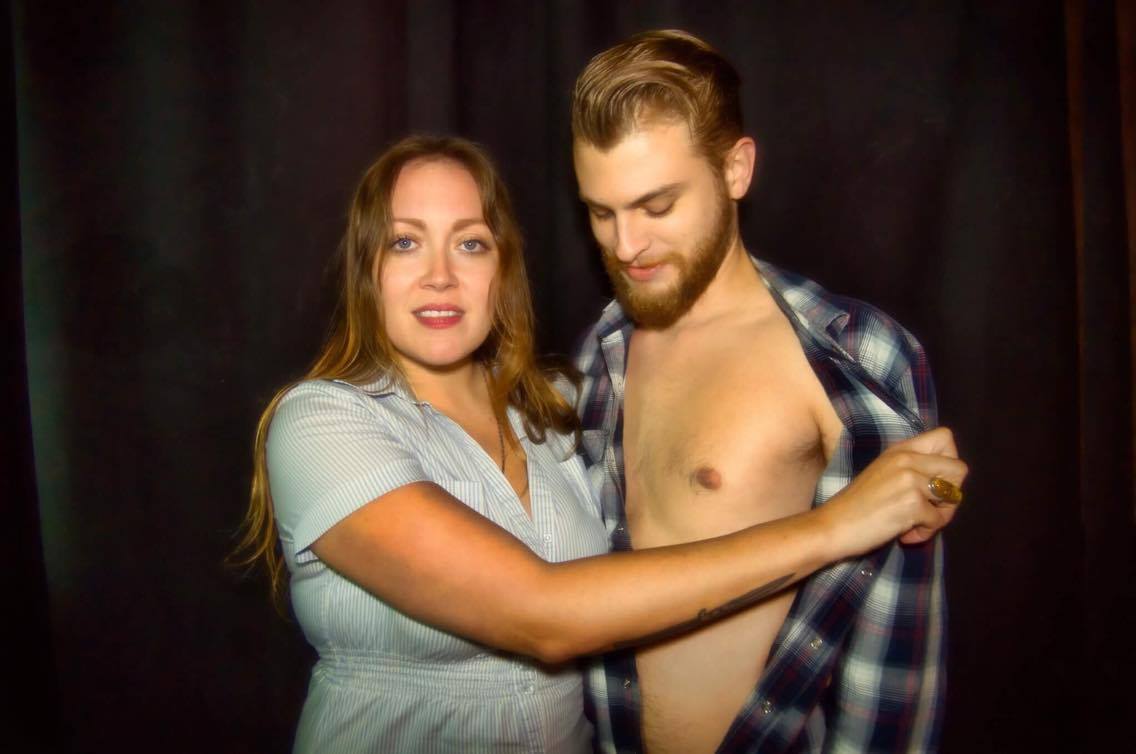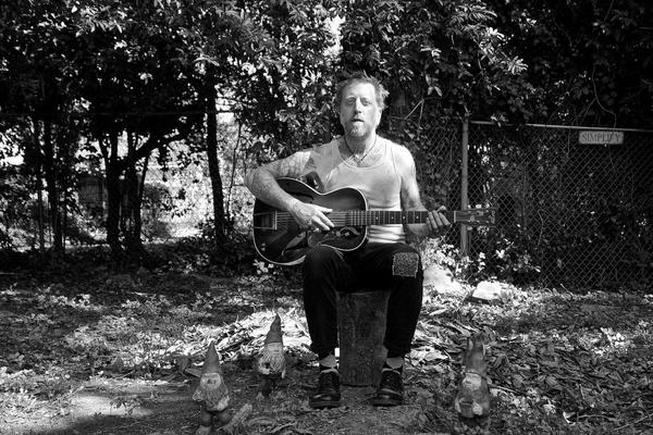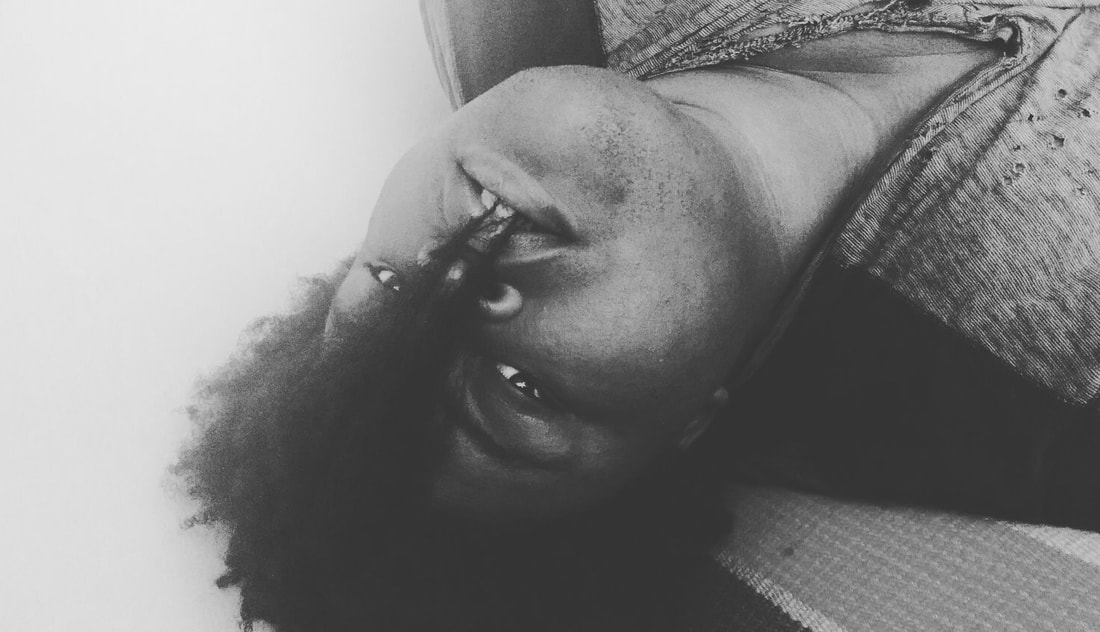|
Andrea Colburn and Mud Moseley write music that that bridges the space between old time country and contemporary issues. Andrea and Mud have a homegrown charm that’s a little Johnny and June, and a little Sid and Nancy. “Dark River” is a 1960s B-movie recast as a spooky hootenanny. Replete with bowed saws, tremolo guitars, and the duo’s keen lyricism, the song offers a vivid narrative about what we cannot leave behind—in this case: undead lovers.
Listen to “Dark River” here, and donate some money to Andrea and Mud’s new album here. SC: I love the repetitive verse structure in this song and how it parallels the undead return of the singer’s beloved. Can you tell me about why you chose this verse structure? AC: I'm so glad you understood the undead return! When Mud first played me this song, it didn't have all of the verses that it does now. When he gave me permission to rearrange and add a few things, I decided that an undead return is exactly what it needed. So of course, I added the verse about walking back to the trailer and that his lover was already there waiting for him. After he killed her! SC: There’s really lovely detail throughout this song. Can you tell me a little bit about these lyrics “the devil don’t wear no bolo tie / he ain’t got no Stetson, and he ain’t got blue eyes / he don’t drive no Cadillac / cause he walks alone.”? MM: The lyrics in this section serve as a double meaning. On one hand its suggesting that the "Devil" can be who or whatever you label it; specifically the male vocal is labeling this returning lover as evil (the Devil) with "...she walks alone". The female vocals are describing her killer with the coinciding "...he walks alone." The aim was for some ambiguity so that it could be applied to some real life audience experiences. It's sort of an allusion to the Robert Johnson story as well. SC: What was your writing process like for “Dark River”? MM: I was playing around with Hank Sr.'s "Lonesome Whistle", and tried putting it in a minor key and the majority of the lyrics just kind of fell out of my mouth. I was sitting by the Yellow River and had been listening to a lot of murder ballads like Omie Wise that week so it came pretty naturally. But the icing on the cake is when I brought the idea to Andrea and she suggested that ghostly Groundhog Day thing. The song itself has changed a bit from our first phone recording to make room for instrumentation. SC: What is your writing process like? Do you write everyday? Do you keep a schedule? Do you wait for inspiration? MM: That really depends. Some days Andrea and I will get a bottle of wine and sit on the porch and write three songs in like 45 minutes and other times one of us will bring a well formed idea to the other to perfect. Occasionally Andrea will throw out a random theme, like "Freddy Krueger goes to prom" or "Wild West bank robbery" when we are particularly stumped or just need a new idea, and they sometimes end up as songs. We've got a lot of voice memos on our phone and some are really weird . . . SC: How does your community of songwriters influence you? AC: It's very easy to be influenced by other songwriters in North GA. There is a ridiculous amount of talent. I definitely wouldn't be writing songs if it weren't for the amazing musicians that I've met in the few short years that I've lived in GA. MM: I've always played music but after moving into the city (Atlanta), the huge and diverse community of musicians and songwriters made writing a pretty obtainable goal. Specifically the open mic night at the Little Vinyl Lounge in Little Five Points pushed me in the direction of writing. I'd go every Monday and it would be a group of artistic individuals in a small room, each doing their own unique thing. When writing, I do draw from experiences at pickin' porch (old timers jam) and Bear on the Sqaure from when I lived in Dahlonega. (M.M.)
0 Comments
E.Z. Shakes, the latest nom-de-plume for Columbia singer songwriter Zach Seibert, creates Americana that is equally stark and poignant. His debut EP is a collection of four narrative-driven songs recorded live at Mac Acres in Blythewood, SC as part of The Woodshed Archives. “Catch Hell” is an apocalyptic hymnal warmed by Seibert’s well-worn voice and the chilling phrases of a pedal steel guitar. Seibert joined me for a brief chat about songwriting, inspiration, and the importance of community.
You can buy a copy of E.Z. Shakes here. SC: Can you tell me about the lyric “I've met Jesus and I've been to Oklahoma, / haven't looked back and I can't say that I'm gonna, / I took my last deep breath when I was 21.”? ZS: The song—if taken as a whole—is sort of a Carpe Diem sort of thing. Our lives are our lives full of failures and missed opportunities, but, there's this one opportunity that I've grabbed over and over again because it's always there. I haven't always grabbed it with success and fact most times I end in failure. This is where the guilt comes in. We grow up hearing that if we don't go to church etc. etc.; we can't possibly know Jesus but that's just a lie. The line about meeting Jesus and going to Oklahoma refers more or less to when I was a kid traveling full of piss and vinegar for the Lord. Don't get me wrong—I long for those days but they came with great consequence. My candle burned bright but there was no one else around that I can relate to so I died on the vine. I was too punk rock, I guess. Taking my last deep breath at 21more or less refers to me walking away from organized religion. SC: What was your writing process like for “Catch Hell”? ZS: My songwriting process for “Catch Hell” was much like a lot of my songs. I sit down every now and then pick up the guitar and I try and come up with a melody around a couple of simplistic chords and then go from there. If it don't work out in 5 or 10 minutes I put the guitar down. With two young’uns running around the house and being married and working full-time it's difficult to have a process or time apart where it's just you and your instrument so you take it where you can get it. SC: What is your writing process like? Do you write everyday? Do you keep a schedule? Do you wait for inspiration? ZS: I don't necessarily play everyday although I have been lately. I find inspiration comes a lot from playing with people that are better than you are and that you love. SC: How does your community of songwriters influence you? ZS: As far as a community of songwriters goes Columbia has got a great cast. There are lots of inspirational songwriters and people who are doing it on a daily basis so that helps a lot. I'm constantly getting to hear new songs that my peers are recording and so that definitely spurs me on to push myself. Cyberbae, headed by the prolific Ahomari, is a Space Pop project that will surely soundtrack our nigh apocalypse “26” by Cyberbae is wrapped in brooding synthesizer chords and a Miami Vice beat. Ahomari croons with a powerful ascending vocal line “I’m tired of being light when it’s dark outside” during the persistent chorus. Later their urgent voice is swallowed by the ominous accompaniment. Ahomari joined me a brief chat about songwriting, their process, and the scene in Columbia, SC.
Check out “26” by Cyberbae here. SC: I love that this song feels like a life-affirming pop song but has lyrics about the tension between the public persona and self. Can you tell me about this tension? A: I've been me for as long as I can be. Being Ahomari is tiring and so is being Ahomari Raymond Turner. My public persona and self aren't different. They're both face value. SC: Can you tell me about the inspiration for the chorus—“I’m tired of being light when it’s dark outside”? A: “I'm tired of being light when light when it's dark outside” is about my friendships or just my relationships with people. I'm often supposed to rise above things or be the bigger person. It's tiring. I get angry at people I love but I have to calm down but I'm usually being considerate of their emotions instead of mine which is fucked up. I'm tired of the light in dark situations. I want to be dark also. SC: What was your writing process like for “26”? A: It was a bit difficult. I didn't know what I wanted to talk about. Like what is there to talk about? In my bed I was incredibly irritable and had kind of started hermiting from the world and really wanted to kind of die. Wanted to eat my life. Wanted to be without my possessions, my thoughts and my shorts. So I wrote this song. SC: You write every day. How has your daily writing process evolved since you started? A: I've stopped writing entire albums a day. Now just lines. SC: How does your community of songwriters influence you? A: Not going to lie. Not many of them influence me musically. I admire them as artist but none of them influence my work because what I do is different from anyone locally. My narrative is also different. Please recommend three artists to check out. Crybaby, Blvckpunx, WaBeya |
The Sound Connector is an online magazine for songwriters. We feature songwriting challenges, monthly interviews, and the opportunity to discover new songwriters. We are interested in all things related to the craft of songwriting. Do you want to be featured on The Sound Connector? Send us your songs!
Categories |



 RSS Feed
RSS Feed